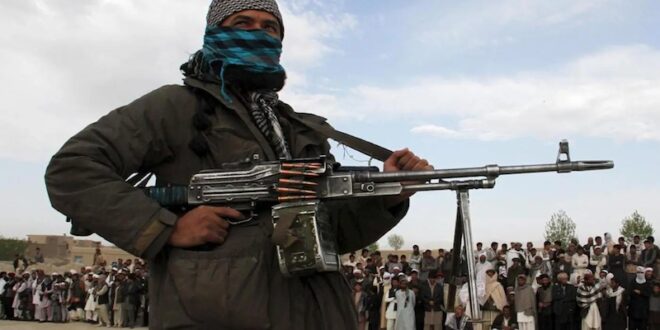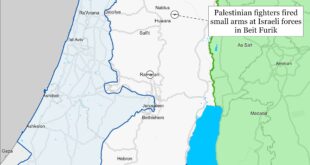On July 30, a deadly suicide attack rocked the JUI (F) rally in Pakistan’s northwestern Bajaur district killing at least 63 people and injuring 123. The attack brought back the dreadful memories of terrorist violence of early 2010s which once paralyzed the country.
Terrorism is rearing its head again in Pakistan, in ways and forms more tragic than the previous onslaught. The recent spike in the militant violence can be attributed to the Afghan Taliban takeover of Kabul in August 2021 and the TTP’s unilateral termination of the ceasefire agreement signaling a formal breakdown of negotiations on 28 November 2022.
A leading think tank, Pakistan Institute for Conflict and Security Studies (PICSS), reported that the recent wave of terror has killed 389 people (exclusive of the figures of the tragic attack in Bajaur). The growing internal political turmoil and aggravating differences with Afghan Interim Government on the issue of TTP is creating a breeding space for antagonistic elements to reorganize and strike back harder.
The Turbulence at the Domestic Political Front
From a domestic-political perspective, there is no denying that the heightened political instability compounded by persisting economic malaise is exacerbating the insecurity situation. The intractable power struggle being played out among the political parties in the aftermath of Khan’s ouster impaired the country’s capability to formulate a coherent counter-terrorism policy. For instance, the caretaker (interim) setup assuming charge in two of the largest provinces (Punjab and KP) of the country has been constitutionally limited in its mandate which only comprises holding the next general elections. Formulating a constitutional, institutional, and policy-level response fall beyond its ambit of affairs. Furthermore, political instability resulted in serious law and order crisis leading to an over-reliance on military to assume greater responsibility of the security affairs which put the institution directly into the propaganda crosshairs.
Political uncertainty reflected itself in the response mechanism developed to counter the terrorism challenge. For instance, instead of revitalizing the broader institutional infrastructure such as the National Security Committee (NSC), the National Counter Terrorism Authority (NACTA), and the respective Apex committees of the provinces for dealing with the issue strategically, an ad-hoc approach was put in place led by local efforts of law enforcement.
The lack of political consensus on dealing with the issue also translates into lack of strategic clarity. As it is clear from the negotiation process last year, the government’s serious lack of strategic clarity yielded into a flawed counter-terrorism policy. Where on one hand, it strived to mainstream the TTP, on the other, it failed to develop a long-term approach when the negotiations broke down. Political instability has also contributed to weakening civilian legitimacy which ought to be the cornerstone of any comprehensive counter-terrorism campaign.
Dangerous Regional Dynamic at Play
On an interstate (regional) level, the Afghan Taliban regaining power in Kabul has emboldened the TTP to regain their organizational and operational strength. The Afghan Taliban regime, after taking charge released Taliban prisoners and important members of leadership which has led TTP to reclaim their lost focus inside Pakistan. In contrast to Pakistan’s expectations, the Afghan Taliban regime has proven to be unreliable in sanctioning TTP and its cross-border infiltration into the country’s territory mainly due their ideological and ethnic affinity which enhances bonds of potential alliance.
Since the Afghan Taliban have assumed charge, the frailing TTP successfully retreated into Afghanistan and managed to find support of their counterparts. It is evident in the case of TTP chief, Noor Wali Mehsud, who currently enjoys the sanctuary provided by Afghan Taliban regime. TTP has gradually crystalized into a terror-unleashing force by allying with the Baloch Liberation Army (BLA) and the Islamic State of Khorasan Province (ISKP). Secondly, the prospect of the Taliban regime to crack down on TTP remains elusive as both retain ethnic and ideological affinity which is expected to grow as times and tides progress.
Gearing up for a Nation-wide Response
As elaborated earlier, Pakistan has to come up with a holistic grand strategy if it aims to extricate terrorism from its soil. It is high time for all concerned stakeholders, including military and political leadership, to put their heads together and formalize an effective counter-terrorism campaign on a national level before it is too late.
The country cannot afford descending back into chaotic episodes, the likes of which we suffered at the height of militancy around 2010s. In this regard, PIPS director Amir Rana, in conversation with Al Jazeera, timely alarmed about the deteriorating situation and remarked that if the security establishment delays putting in effective counter-terrorism policy, the over-all situation would soon spiral out of hand. It could potentially bring back troubled memories of the 2013 election campaign which still stirs up memories of bloodshed and chaos. Therefore, it is indispensable for Pakistan to consider the multitude-nature of the issue in order to respond in an effectual manner. It is inevitable if the country is to reclaim its withering heart and soul.
 Eurasia Press & News
Eurasia Press & News



